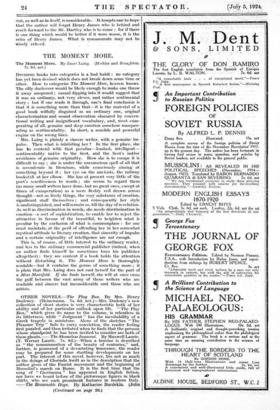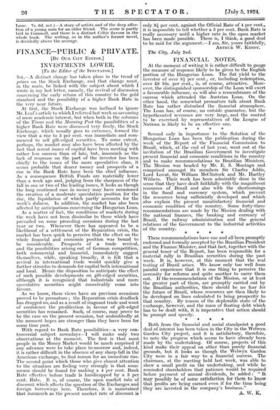OTHER. NOVELS.—The Play Box. By Mrs. Henry Dudeney. (Heinemann. 7s.
6d. net.)—Mrs. Dudeney's new collection of short stories is very characteristic both of her ability and of her particular outlook upon life. " The Play Bbx," which gives its name to the volume, is relentless in its bitterness, while " Judgment " has the inevitability of a Greek tragedy in miniature. Alone of the sketches The Pleasure trip ' fails to carry conviction; the 'reader feeling first puzzled, and then irritated when he finds that the persons whose standpoint be has been, invited to consider are both of them ghosts.-;---The Shameless Innocent. By Maxwell Laurie. (T. Werner Laurie. 7s. 6d.)—When a heroine is described as " the consummation of the beauty of centuries," and, further, is possessed of a devastating innocence, the reader may be prepared for some startling developments on her part. The interest of this novel, however, lies not so much in the doings of Glorinda Swift as in the description that the author gives of the Fascist movement and the beginning of MussolinI's march on Rome. It is the first time that the song of " GioVinezza " has • Appeared in • EnigliAh fiction, nor have we heard before of the picturesque figures in black shirts, who are such prominent features in modern Italy. —The Reasonable Hope. By Katharine Burdekin. (John (Continued on- page 26.)
Lane. 7s. 6d. net.)—A story of artists and of the deep affec- tion of a young man for an older friend. The scene is partly laid in Cornwall, and there is a distinct Celtic flavour in the whole book. The writing, as in the author's former novel, is decidedly above the average.



















































 Previous page
Previous page